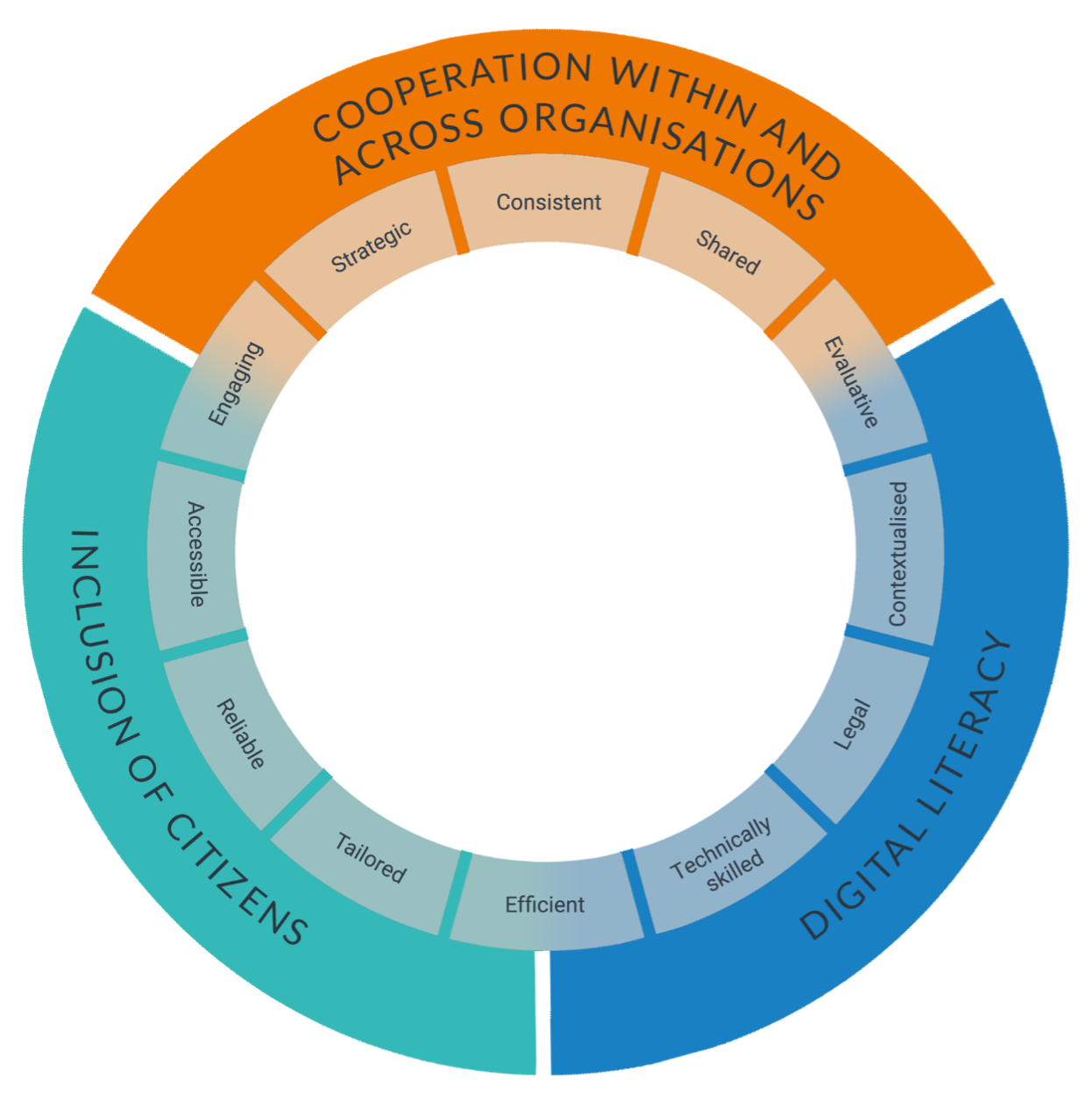Resilience Wheel: Difference between revisions
Kiehl (talk | contribs) No edit summary |
Kiehl (talk | contribs) No edit summary |
||
| Line 1: | Line 1: | ||
[[File:Resilience Wheel.png|alt=A screenshot of the resilience wheel|center|frameless|500px]] | [[File:Resilience Wheel.png|alt=A screenshot of the resilience wheel|center|frameless|link=|500px]] | ||
Revision as of 16:21, 7 December 2022

The Resilience Wheel is a strategic tool for discussing and assessing what authorities, NGOs and private sector organizations working with disasters need to consider when using social media and crowdsourcing in management processes. It is a tool that helps to kick start holistic and context dependent conversations about potentials and challenges associated with using social media and crowdsourcing in disaster management processes. It assists as a framework to map an organisations’ capacities to apply these technologies in disasters.
The Wheel consists of two layers: a set of drivers that reflect the most important focal points to alter resilience-building through social media and crowdsourcing. Connected to each driver is a set of characteristics that describe the needed qualities for building disaster resilience through social media and crowdsourcing in an organisation.